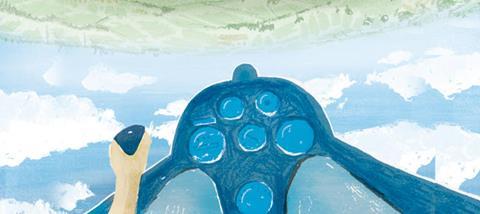
The girl who ran up to me with a painting of her street was 6 years old. I took it from her as if I was handling a Monet. I said, “It’s amazing!” OK, so perhaps “amazing” was a little over the top but all the elements of the street were there: the houses all had doors and windows, the lamp post was just about where it stands in real life, and the cars looked like…well…cars. But there was one thing that was wrong – the thing that kept me, and perhaps you, from ever getting an ‘A’ in art: perspective.
A lack of perspective doesn’t just affect painters, and getting it wrong can have far greater consequences than a dropped mark or two in school. Some time ago the pilot of a US air force jet pulled on the joystick to thrust her aircraft up and out of the clouds – and crashed into the ground. She was suffering from what is called ‘spatial disorientation’. For the past few minutes she had been flying upside down. Her perspective of reality had deserted her.
Perhaps we can imagine losing our perspective in the cockpit of a plane when the instruments let us down in bad weather. But perspective – or sometimes a very limited perspective – often determines our actions and outcomes in everyday life.
Consider this situation: a man is leaving an office party and a work colleague offers him a lift home. She stops her car 100 yards from his house, turns off the engine and says, “Jack, I know that things aren’t so good between you and Suzie at the moment. If ever I can help…” He’s had a couple of glasses of wine, the aroma of her perfume fills the car, and now she moves closer to him. At that moment his perspective is confined to the tiny space that fills the inside of the Ford Mondeo and the prospect of the immediate pleasure of a brief kiss; a kiss that tells him he is still attractive to women – and still wanted.
Since that night all those years ago, Jack has replayed over and over in his mind what happened next. He has often wondered how such havoc could have been unleashed by something that was done so easily, but with just the limited perspective of the moment he could not have known how it would all end. If only he had somehow been able to see the text she would send him an hour later that said how special their time together had been. If only he could have heard the phone call she made to his wife a week later after his rejection of her offer to meet again. And if only he could have foreseen the looks on his children’s faces as he hugged them in the hallway of his home on the day he finally left, he would never have accepted the lift that changed his life forever.
How can we get a longer and wider perspective? It’s not easy. We can do so by talking with friends and being honest with each other; by taking time to consider what we see happen in the lives of others. But let me suggest another source of help: Proverbs. This book tries to prevent us from having to learn lessons the hard way by telling us how our actions in various life situations will often turn out.
Describing the outcome in a similar scenario to the one I mentioned above, Proverbs puts it like this: “…he followed her…like a deer stepping into a noose…little knowing it would cost him his life” (Proverbs 7:22-23). The ancient book whispers to us, “I will show you the next frame of the film – I will show you how, so often, it all ends – I will give you perspective.”
Rob Parsons is founder and chairman of Care for the Family Follow Rob @Rob_Parsons_


























